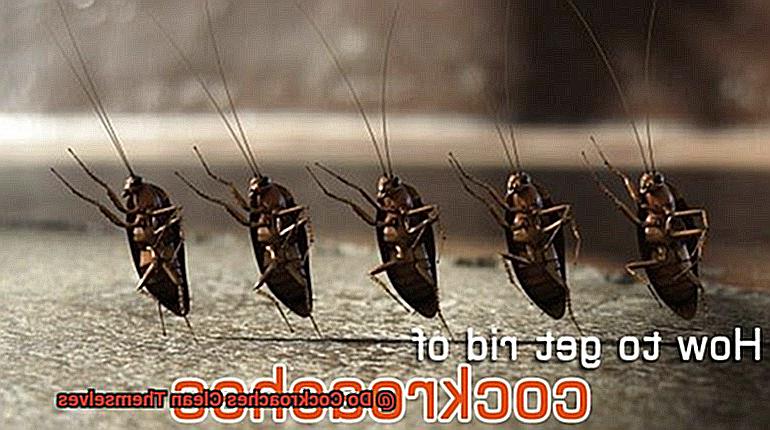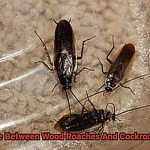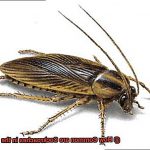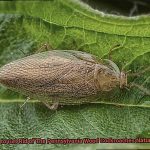Cockroaches have long been associated with dirt and disease, but have you ever wondered if they clean themselves? The thought of a cockroach grooming itself might make your skin crawl, but it’s actually quite intriguing.
Contrary to popular belief, cockroaches are incredibly hygienic creatures. They take their cleanliness seriously and spend a significant amount of time grooming themselves. But why do they do it? Do they have the same reasons for cleaning themselves as we do?
In this blog post, we’ll delve into the world of cockroach hygiene. We’ll explore how these fascinating insects clean themselves, what tools they use, and why their cleanliness is essential to their survival. So whether you’re an avid bug enthusiast or just someone looking to learn something new, this post will undoubtedly pique your interest.
Are you ready to discover the secrets behind cockroach self-grooming?
Let’s dive in.
Do Cockroaches Clean Themselves?
Contents
When it comes to hygiene, cockroaches are surprisingly fastidious creatures. Despite their reputation for thriving in dirty and unsanitary environments, cockroaches take great care to keep themselves clean and healthy. But how exactly do they go about this?
Cockroaches use their legs and antennae to wipe their bodies down, ensuring that every nook and cranny is free from dirt and debris. They also use their mouthparts to clean hard-to-reach areas that their legs can’t quite reach. And if that’s not impressive enough, cockroaches also produce their own natural insecticides through glands in their body to keep harmful microbes at bay.
But wait, there’s more. Cockroaches secrete an oily substance from their bodies that repels water and dirt. This makes it easier for them to stay clean and hygienic. So next time you see a cockroach scurrying across your kitchen floor, remember that it’s likely spent a good amount of time grooming itself to stay healthy and clean.
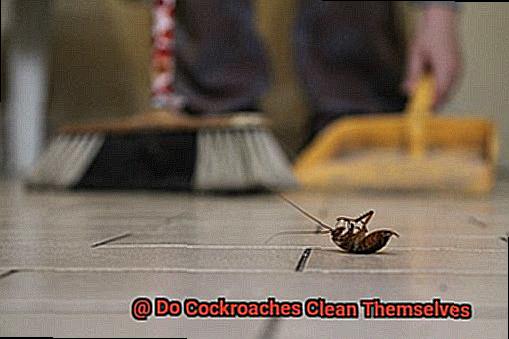
Of course, it’s important to remember that cockroaches can still carry harmful bacteria and disease-causing organisms on their bodies. That’s why it’s crucial to take steps to prevent cockroach infestations in your home or workplace. Keep living spaces clean and clutter-free, seal up cracks and holes in walls and floors, and store food in airtight containers.
Despite the negative connotations associated with these insects, we can appreciate the important role they play in our ecosystem by decomposing organic matter and recycling nutrients back into the soil.
How Do Cockroaches Clean Themselves?
Cockroaches may not be the first creature that comes to mind when you think of cleanliness, but they are actually quite fastidious. These adaptable insects have a fascinating ability to keep themselves clean, which is essential to their survival in a range of environments.
Cockroaches have specialized glands in their mouth and legs that produce a waxy secretion called cuticular hydrocarbons. This secretion acts as a natural insecticide, repelling water and dirt and keeping cockroaches clean and free from harmful bacteria.
When a cockroach feels dirty or contaminated, it uses its legs to rub the hydrocarbon secretion all over its body. This not only cleans the cockroach but also helps to protect it from harmful bacteria that may be present on its body.
In addition to self-grooming, cockroaches also engage in mutual grooming behavior when they encounter each other. They use their mouthparts to clean each other’s antennae and bodies, ensuring that any dirt or debris is removed and they remain healthy and clean.
Overall, the ability of cockroaches to clean themselves is critical to their survival. By staying clean and free from bacteria, they are better equipped to thrive in a range of environments and outcompete other species.
Benefits of Cockroach Grooming
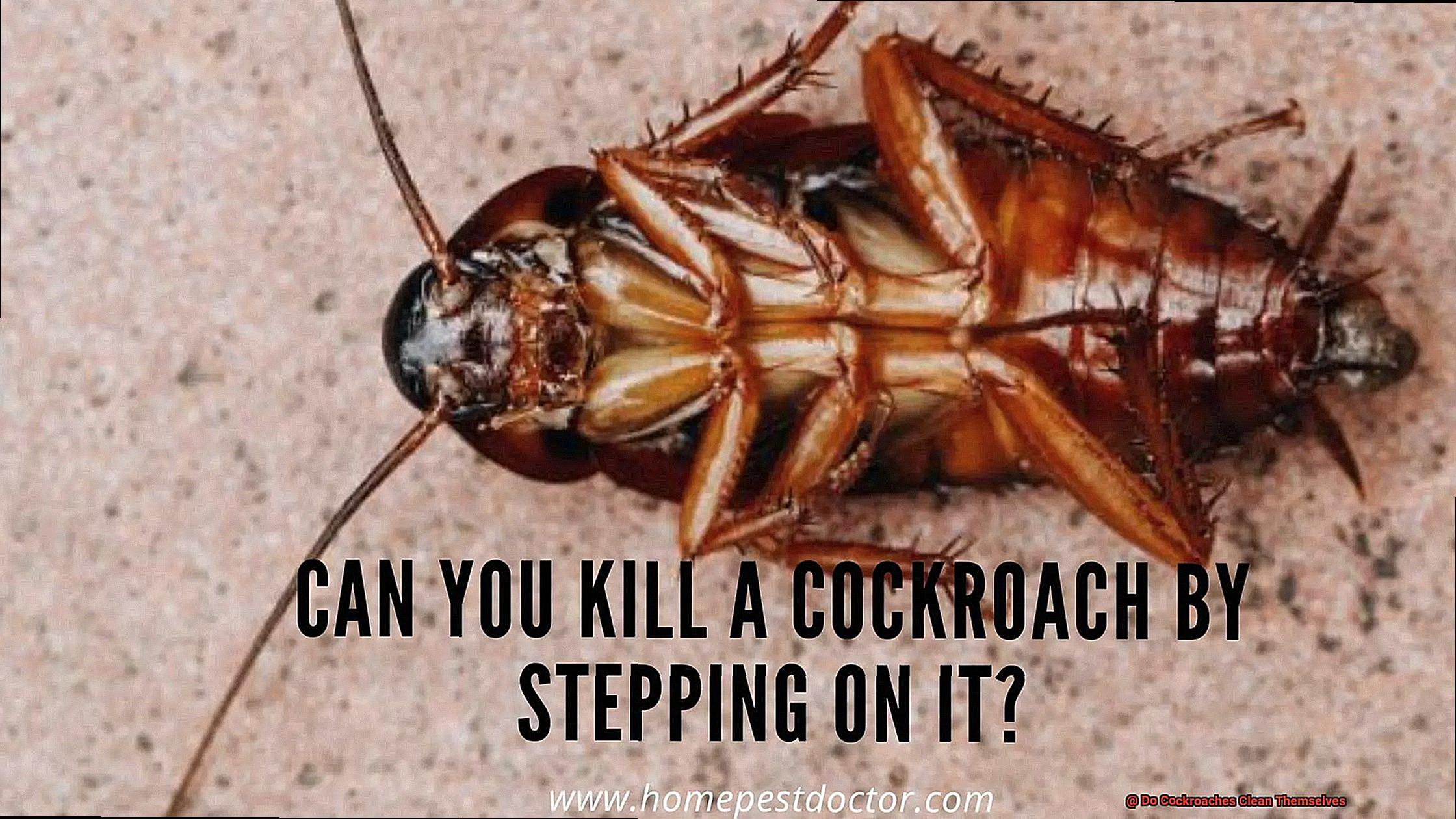
Cockroaches may not be the most beloved insect, but their ability to groom themselves is awe-inspiring. This grooming process is more than just a superficial act – it serves several crucial functions that increase their chances of survival in harsh environments.
One of the primary benefits of cockroach grooming is keeping their bodies clean. These tough creatures live in dirty environments and come into contact with countless bacteria and germs. Grooming allows them to remove any external contaminants from their bodies, reducing their risk of infection.
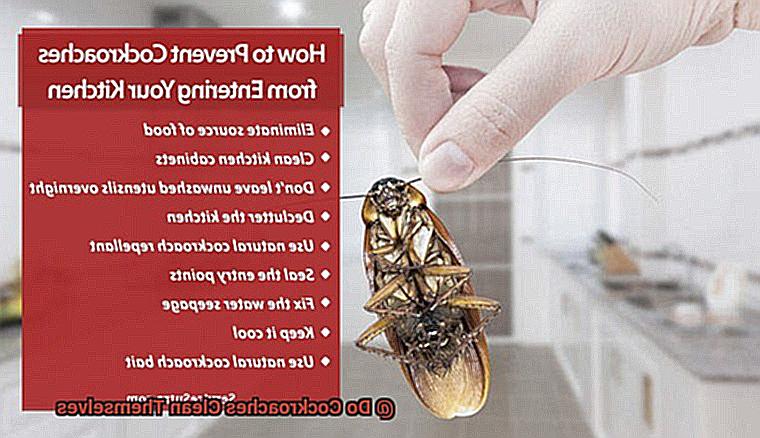
Moreover, grooming helps cockroaches maintain their sensory organs, such as antennae and legs. These body parts are vital for their survival as they rely on them to navigate their environment, find food and mates, and sense danger. By cleaning these organs, cockroaches ensure that they are functioning optimally.
Another fascinating benefit of cockroach grooming is its role in regulating their body temperature. As cold-blooded creatures, they rely on external sources to regulate their body temperature. Through grooming, they spread a thin layer of saliva over their bodies, which acts as a coolant and helps them stay cool in hot temperatures.
Overall, cockroach grooming is a critical part of their survival strategy. It allows them to maintain hygiene, sensory organs, and body temperature, ultimately increasing their chances of surviving in harsh environments.
Disadvantages of Cockroach Grooming
As much as we admire cockroaches for their impressive grooming abilities, it’s important to acknowledge the downsides of this process. Cockroaches are notorious carriers of diseases and bacteria, and their grooming habits can exacerbate the problem. When one cockroach grooms itself, it can easily transfer harmful pathogens such as Salmonella, E. coli, and Staphylococcus to other cockroaches in close proximity.
But that’s not all. Cockroach grooming is also responsible for spreading allergens that can trigger respiratory problems in humans. Shedding their skin and leaving behind fecal matter during grooming, cockroaches spread allergens that become airborne and can contaminate a home or building.
Moreover, antibiotic-resistant bacteria are becoming an increasing concern in public health, and cockroach grooming has been linked to their development. MRSA (Methicillin-resistant Staphylococcus aureus) is one such strain that cockroaches carry, posing a significant threat to humans as it causes difficult-to-treat infections.
It’s clear that although cockroach grooming is essential for their hygiene, it comes at a cost. To reduce the risk of spreading disease, allergens, and antibiotic-resistant bacteria, homeowners must take proactive measures to prevent cockroach infestations and regularly clean their living environment.
c8Wgwa1N05s” >
Conclusion
To sum it up, cockroaches are not just filthy pests that carry diseases. In fact, they are meticulous about their hygiene and take great care to keep themselves clean and healthy. Through a complex set of behaviors, these insects groom themselves using their mouths to clean their legs and antennae, and even produce their own natural insecticides to ward off harmful microbes.
As decomposers in our ecosystem, cockroaches play an essential role in breaking down organic matter and recycling nutrients back into the soil. However, it’s important to note that they can still carry dangerous bacteria and disease-causing organisms on their bodies. Therefore, taking steps to prevent cockroach infestations in your home or workplace is crucial.
While grooming has many benefits for these fascinating creatures such as keeping their bodies clean and maintaining sensory organs and body temperature, there are also downsides. Grooming can actually worsen the spread of diseases, allergens, and antibiotic-resistant bacteria.
Overall, understanding the hygiene habits of cockroaches can help us appreciate their significance in our ecosystem while also taking necessary precautions to avoid negative consequences.

